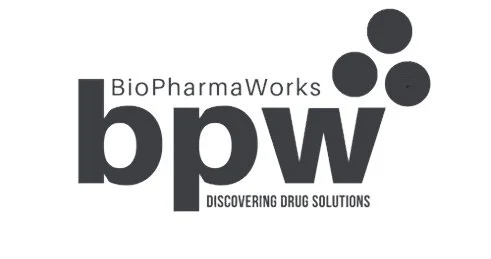Brian T. O’Neill
Medicinal Chemistry
Brian T. O’Neill
Medicinal Chemistry
Education: · PhD-Synthetic Organic Chemistry,Yale University with Samuel Danishefsky
Experience: 1982-2017 Pfizer Neuroscience Medicinal Chemistry, Antibacterial Process Chemistry.
Expertise: Drug Design and Synthesis, Process Chemistry, Outsourcing, 2010 “Heroes of Chemistry” Award for the discovery of varenicline (Chantix) from American Chemical Society(ACS).
Over 85 patents and scientific publications. Brian O'Neill is a Medicinal Chemist with expertise in Neurodegenerative and Psychotherapeutic discovery especially related to Alzheimer's disease and nicotine addiction therapy. He has led cross departmental teams in the advancement of candidates to nomination, regulatory safety and clinical trials. He has mentored productive medicinal chemistry and process chemistry teams to work cooperatively towards advancing synthetic goals. His expertise and focus are in finding or following leads by understanding binding interactions or functional response and by designing synthetic routes to define SAR. He designs versatile templates that can efficiently access key vectors defined by structure - based design in good physical property space. He has background in process chemistry, uses mechanistic organic chemistry and has worked on challenging targets such as multi-step penem and quinolone antibacterials, BACE inhibitors as well as NK1 antagonists, kinase inhibitors and nicotinic partial agonists. He has developed natural product leads to build an understanding of the structural basis behind nicotine partial agonist for smoking cessation which lead to the discovery of Chantix. He has used SBDD to design kinase and aspartic acid protease inhibitors. Brian also led a $500k 2-year collaboration with MIT and UPENN to discover methods for Csp3-Csp2 coupling. Brian is seeking and involved in consulting roles in drug discovery where he can guide teams towards efficient prosecution of SAR programs in neuroscience or oncology programs especially where it has been difficult to find enabling synthetic chemistry, permeable or CNS penetrant matter.
Education: · PhD-Synthetic Organic Chemistry,Yale University with Samuel Danishefsky
Experience: 1982-2017 Pfizer Neuroscience Medicinal Chemistry, Antibacterial Process Chemistry.
Expertise: Drug Design and Synthesis, Process Chemistry, Outsourcing, 2010 “Heroes of Chemistry” Award for the discovery of varenicline (Chantix) from American Chemical Society(ACS).
Over 85 patents and scientific publications. Brian O'Neill is a Medicinal Chemist with expertise in Neurodegenerative and Psychotherapeutic discovery especially related to Alzheimer's disease and nicotine addiction therapy. He has led cross departmental teams in the advancement of candidates to nomination, regulatory safety and clinical trials. He has mentored productive medicinal chemistry and process chemistry teams to work cooperatively towards advancing synthetic goals. His expertise and focus are in finding or following leads by understanding binding interactions or functional response and by designing synthetic routes to define SAR. He designs versatile templates that can efficiently access key vectors defined by structure - based design in good physical property space. He has background in process chemistry, uses mechanistic organic chemistry and has worked on challenging targets such as multi-step penem and quinolone antibacterials, BACE inhibitors as well as NK1 antagonists, kinase inhibitors and nicotinic partial agonists. He has developed natural product leads to build an understanding of the structural basis behind nicotine partial agonist for smoking cessation which lead to the discovery of Chantix. He has used SBDD to design kinase and aspartic acid protease inhibitors. Brian also led a $500k 2-year collaboration with MIT and UPENN to discover methods for Csp3-Csp2 coupling. Brian is seeking and involved in consulting roles in drug discovery where he can guide teams towards efficient prosecution of SAR programs in neuroscience or oncology programs especially where it has been difficult to find enabling synthetic chemistry, permeable or CNS penetrant matter.

